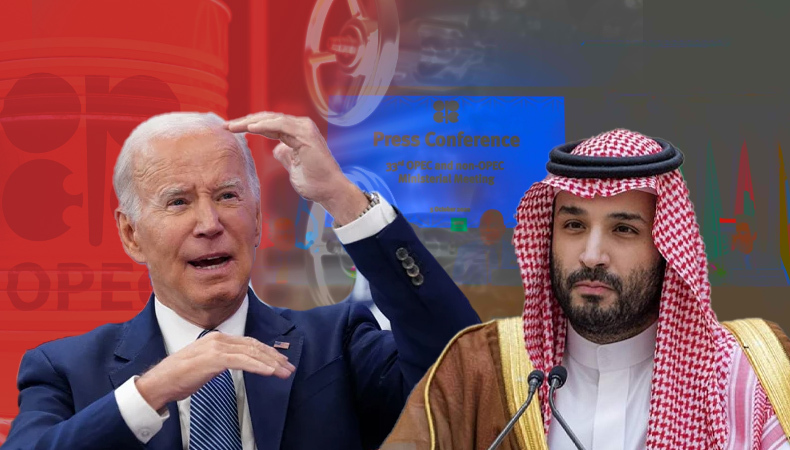Biden Pledges ‘Consequences’ For Saudi Over Oil Production Cuts

In response to Saudi Arabia’s decision to reduce oil production in concert with Russia and other significant energy producers, US President Joe Biden told CNN on Tuesday that Saudi Arabia will face “consequences.” This decision has raised concerns about a spike in oil prices and prompted some members of Congress to suggest reducing U.S. arms sales to the Saudi government.
In an interview with CNN’s Jake Tapper, the president stated that when Congress reconvenes from its recess, he will address how to react to the production restrictions announced last week by OPEC+, a group of oil-exporting nations led by Saudi Arabia.
It’s unclear what Biden’s specific goals are. There will be consequences for what they’ve done, he added, but he did not specify whether he would support a proposal by Senate Foreign Relations Committee Chair Bob Menendez (D-N.J.) to halt all arms sales and security cooperation with Saudi Arabia.
Asserting that he was attending a larger summit with the leaders of several other Middle Eastern nations, Biden also defended his choice to visit Saudi Arabia in July and meet with Crown Prince Mohammed bin Salman, a meeting that was preceded by a fist bump between the American president and Saudi Arabia’s de facto leader.
Read | Saudi Arabia maintains same crude oil export price to Asia for November
A bill that would prohibit all arms shipments to Saudi Arabia for a year was launched earlier on Tuesday by Sen. Richard Blumenthal (D-Conn.) and Rep. Ro Khanna (D-Calif.). Due to Saudi Arabia’s involvement in the Yemeni civil war, members of both parties have already attempted, generally unsuccessfully, to limit Saudi arms supplies, but it is still unclear how the most recent bill will do in Congress.
Last week, the OPEC+ group, which consists of Saudi Arabia and Russia, decided to reduce oil production by 2 million barrels per day beginning in November. Global oil prices, which skyrocketed after Russia invaded Ukraine earlier this year before falling in recent months, are largely anticipated to increase as a result of the decision.
The Biden Administration has criticised OPEC+ for the move, which could increase already high gas prices—a major driver of inflation—and boost the Russian government’s finances as it continues to fight in Ukraine. Saudi officials have insisted that the production cuts are intended to bring “stability” to the energy markets. However, the Biden Administration has criticised OPEC+ for the move.
The relationship between Biden and Saudi Arabia has been challenging. He threatened to treat Saudi Arabia as a “pariah” while on the campaign trail, where he denounced Saudi authorities for their part in the killing of Washington Post columnist and regime critic Jamal Khashoggi. However, as gas prices rose earlier this year, Biden allegedly became keen to repair relations with Saudi Arabia.




